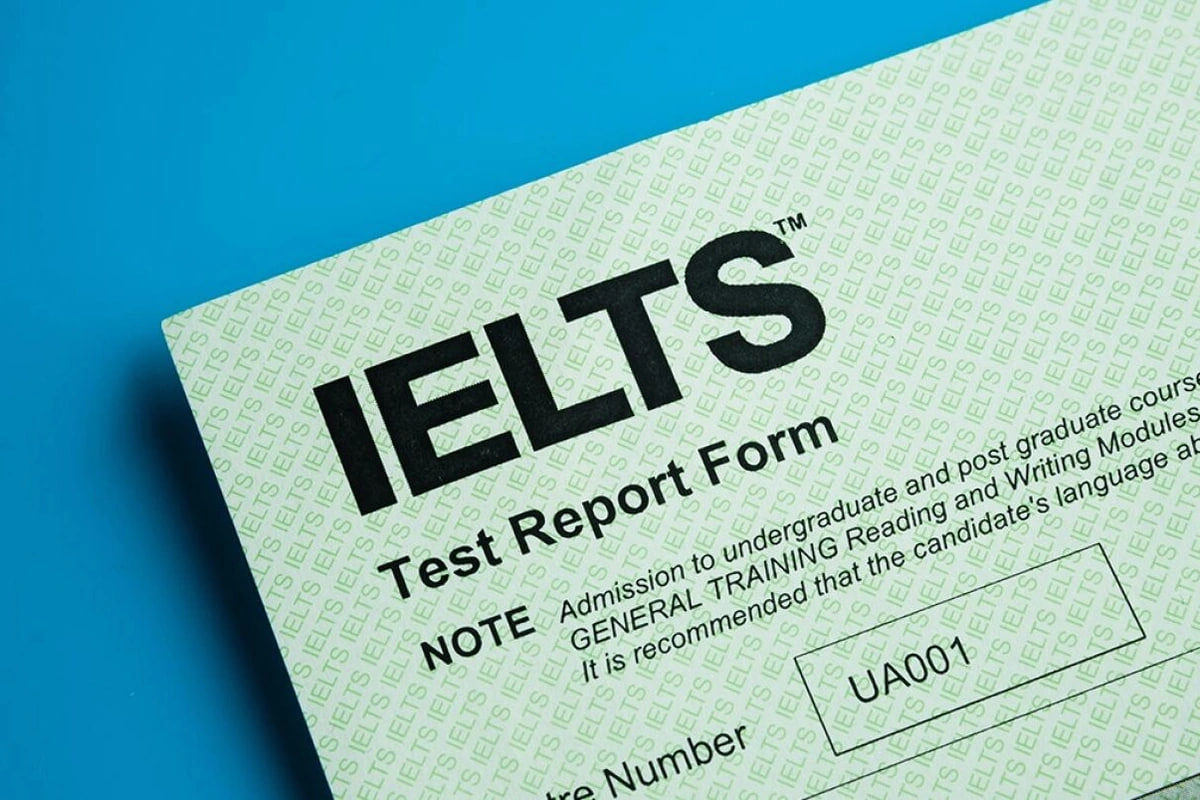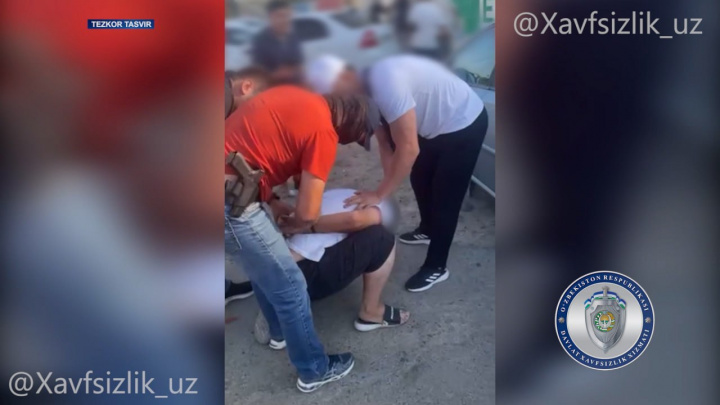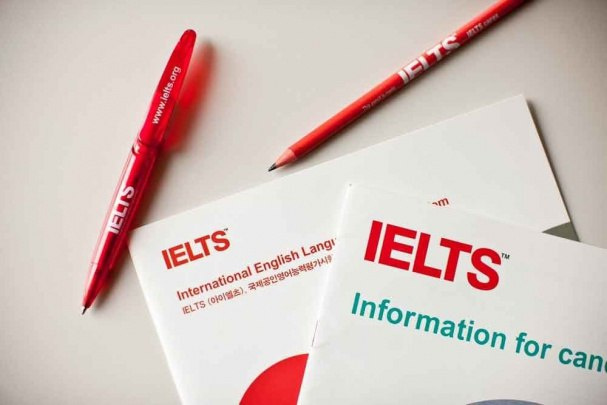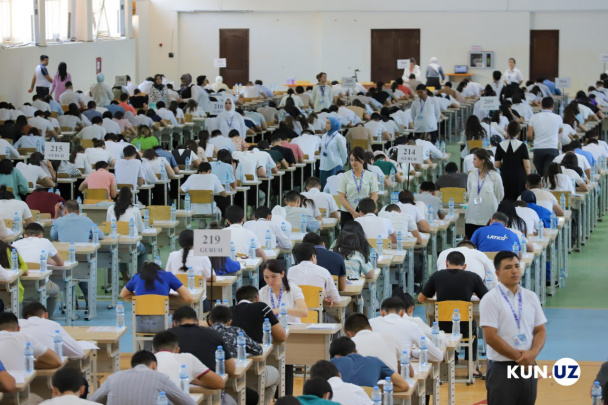Widespread IELTS answer leaks raise alarm, spark fears of exam ban in Uzbekistan
In recent months, IELTS (paper-based) test answers in Uzbekistan have been subject to re-evaluation, with some results being widely canceled. This may be linked to the alleged leak and online sale of test answers. Gazeta.uz investigated the situation by reaching out to the British Council and IDP.

During May and June, several IELTS candidates in Uzbekistan experienced the rechecking of their exam results, and in some cases, the scores were invalidated. This appears to be related to the leaking of test answers online and their subsequent sale. Social media users have raised concerns that more and more candidates are memorizing leaked "answer packages" to pass the exam, potentially undermining trust in IELTS across the country. Gazeta looked into the issue.
Official response: Unlawful sale of test materials
On June 17, the IDP testing center acknowledged on its social media channels that the illegal trade in test materials has escalated recently. The organization described this not only as a legal violation but also a betrayal of integrity, the education system, and the dreams of the future.
Abdulaziz Saidalikhanov, an IELTS instructor, posted on Facebook expressing concern that the situation could lead to IELTS exams being banned in Uzbekistan altogether. “If this continues, IELTS might be shut down here, and students will be forced to travel to neighboring countries to take the test… Action must be taken,” he wrote.
Rechecking and cancellations: A problem for applicants
On June 20, two official testing bodies in Uzbekistan – the British Council and IDP (via Edu-Action Centre) – announced that all results from the June 7 IELTS test would be withheld for rechecking by Cambridge English, in accordance with IELTS regulations. Typically, test results are released within 13 days, but candidates are currently in the dark about when the rechecking process will conclude.
This has caused particular concern among applicants who were planning to use IELTS scores to gain an advantage in university admissions, as the application period in Uzbekistan ends on June 25.
In fact, back in May, the IDP test center had already withheld some results following monitoring, citing possible rule violations, suspicious behavior from candidates, and other irregularities as reasons for further investigation and analysis.
Once rule violations were confirmed, results were canceled according to regulations, and candidates were informed. Test-takers were also given the opportunity to contest or explain their position.
Where are the leaks coming from?
There is no clear evidence about where or how candidates are obtaining leaked “predicted questions” or answer sets. However, various Telegram groups and channels openly advertise the sale of answer keys for upcoming tests, claiming to offer solutions to likely questions.
In an interview conducted in February 2025, Gazeta asked Diyorbek Hayitmurodov, head of an IELTS prep center in Tashkent, about how test materials might be leaked. He explained that while official test centers do not provide advance access to questions, repeated use of test sets across regions could be a factor.
“The test centers do not give us the questions in advance. That’s impossible. However, it’s true that some questions used in one part of the world may appear again elsewhere. Since IELTS has limited resources and about 4 million candidates annually, it’s not feasible to create entirely new questions for every region,” he said.
Hayitmurodov noted that questions used in the North Asia region in 2023 could plausibly be reused in Uzbekistan in 2024. He added that test prep centers might work with materials circulating globally online that eventually appear in actual exams.
He also explained that candidates may share their essay topics or test experiences after taking the test. Others might compile this data into categorized databases, which prep centers then use – sometimes these old questions reappear in future exams.
British Council and IDP respond
Gazeta contacted the British Council and IDP to get official comments regarding the answer leaks and result cancellations.
The British Council said that any allegations of cheating are taken extremely seriously. They investigate every claim of test tampering or illegal usage, regardless of where it occurs.
“If there is a claim that test fraud has taken place, it will be thoroughly investigated. This is done to protect the interests of the over 12,000 institutions that rely on the credibility of IELTS results,” the Council stated.
They confirmed that some candidates have indeed attempted to use illegal test materials. “Individuals who attempt to promote or sell fake IELTS materials are regularly identified through ongoing monitoring and reported to the British Council’s global security team,” the statement added.
IDP also acknowledged attempts by certain individuals to exploit the system for profit through suspicious or unlawful methods. However, they strongly denied speculations that local test center staff were involved.
The organization clarified that it is only responsible for administering the exams, while all test results are evaluated by Cambridge English. It emphasized that answer keys never even reach test center staff. IDP admitted that while some fraudulent activities have been identified in the past, suspicious incidents involving answer leaks have notably increased in recent months.
“Fraudsters usually operate covertly, remain anonymous, and disappear once payment is made. The worst part is that candidates who trust these scammers often face the cancellation of their scores and serious consequences, including being reported to relevant authorities. The only legitimate path to success in IELTS is through hard work and proper preparation,” the organization stressed.
They warned that scams promising high scores under titles like “predicted questions,” “prep materials,” or “answer bundles” are increasingly common. “Everyone must remain vigilant and avoid falling for offers of fake IELTS scores,” IDP advised.
It’s worth noting that under IELTS rules, if misconduct is proven, test results are canceled, and depending on the case, candidates can be banned from taking the exam for up to five years. IELTS also monitors social media and online platforms, removing any illegally or unauthorized shared content.
Moreover, efforts are underway to improve test integrity, including enhancing identity verification systems, applying advanced surveillance tools, and establishing confidential reporting channels for candidates.
Recommended
List of streets and intersections being repaired in Tashkent published
SOCIETY | 19:12 / 16.05.2024
Uzbekistan's flag flies high on Oceania's tallest volcano
SOCIETY | 17:54 / 15.05.2024
New tariffs to be introduced in Tashkent public transport
SOCIETY | 14:55 / 05.05.2023
Onix and Tracker cars withdrawn from sale
BUSINESS | 10:20 / 05.05.2023
Latest news
-
Investors vs. homeowners: Economist defends property owners as Deputy Minister blames residents for renovation delays
SOCIETY | 08:15
-
UN labels Gulnara Karimova’s detention unlawful, Uzbekistan disputes allegations
POLITICS | 21:53 / 09.07.2025
-
Speeding fines and traffic penalties to be toughened under new rules
POLITICS | 18:59 / 09.07.2025
-
Uzbekistan launches national program to improve road safety and reduce fatalities
SOCIETY | 17:24 / 09.07.2025
Related News

17:22 / 09.07.2025
Authorities bust criminal gang extorting money at Tashkent’s Farhod auto market

11:54 / 09.07.2025
Fake job promises abroad lead to arrests in Tashkent, Namangan, Fergana, and Andijan

19:11 / 08.07.2025
IELTS in Uzbekistan temporarily shifts to computer-only format after suspected answer leaks in paper-based tests

18:08 / 07.07.2025



